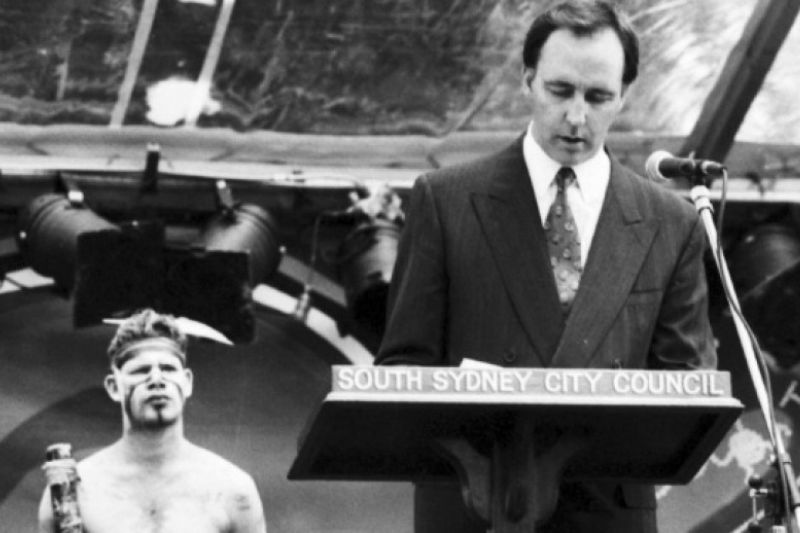As political opponents of an Indigenous Voice muster their forces, some insights might be drawn from the political landscape of three decades ago. Frank Brennan outlines the current dilemma for allies of Indigenous peoples seeking a constitutionally entrenched Voice to the Australian Parliament which three past Coalition Prime Ministers (Mr Abbott, Mr Turnbull and Mr Morrison) have opposed:
We have a lot of work to do if there is to be any prospect of a successful referendum which can be said to be true towards Indigenous people, who have put to us the mode by which they want to be recognised in the Constitution. They have said they want a Voice. Now, we can debate whether it be a Voice to Parliament or a Voice to Parliament and government, or a Voice just about particular laws or a Voice about all manner of things. But Mr Howard seems to be saying that a Voice of any sort in the Constitution is not on. I dare say he hasn't lost all his political clout.

Another past Prime Minister, Labor’s Paul Keating, had only been in office for just some six months when one issue of fundamental significance to Indigenous peoples (in particular) landed in his in-tray. The High Court of Australia in June 1992 handed down the Mabo decision, recognising that the Murray Islanders of the Torres Strait were entitled ‘as against the whole world, to possession, occupation, use and enjoyment of the lands of the Murray Islands’.
A small team in the Department of Prime Minister and Cabinet was hastily put together to review the implications and advise the Government on a potential whole of Government response. The team was led by experienced and respected senior official, Sandy Hollway, previously Chief of Staff to Bob Hawke. Sandy was leading the response to the 339 recommendations of the Royal Commission into Aboriginal Deaths in Custody, the final one of which recommended a whole of nation effort on the process of reconciliation.
Just a few days after the decision, the PM asked Sandy to come up to the Prime Minister’s office for a personal briefing. Sandy knew that the PM liked to talk things through informally to get across a new and complex issue. Unfortunately, Sandy had come down with a bad case of laryngitis; he had lost his voice. As a middle level public servant in PM&C working on the reconciliation process at the time, I was tasked to accompany Sandy to verbally summarise the Department’s initial take on the policy implications of the decision. Sandy would save his voice for any questions the PM might have.
'The Prime Minister was not required by law, regulation, policy or practice to formally consult or negotiate with Indigenous peoples on the issue. The Aboriginal and Torres Strait Islander Commission of the time could be relegated to the margins of the policy making process.'
The decades have eroded some of the (still confidential) details of the meeting in one of the Cabinet ante-rooms. In general terms, the briefing gave a quick recap of the decision: that the common law now recognised that Indigenous rights of ownership existed before non-Indigenous settlement; and may still exist where connection with land had been maintained and title not extinguished; and native title could have survived in on vacant crown land or land allocated for public purposes not inconsistent with native title. It was also possible that native title may have survived on some pastoral leases, marine reserves and offshore areas and rivers. The implications for property law, the mining and pastoral industries, and State and Territory Governments were significant. For Aboriginal and Torres Strait Islander Australians and the process of reconciliation, the decision and Government response was of course, massive. It was a ‘can of worms’ bureaucratically, legally and politically.

History tells us that over the rest of 1992 and all of 1993 Prime Minister Keating invested a huge amount of political capital into the Mabo policy and legislative process, designing the Native Title Act after extensive and detailed negotiations with Indigenous leaders and establishing a comprehensive social justice package for those whose land needs were great, but whose chances of claiming title may have been poor. The Mabo decision became a defining episode for Paul Keating and for the Australian nation.
The Prime Minister was not required by law, regulation, policy or practice to formally consult or negotiate with Indigenous peoples on the issue. The Aboriginal and Torres Strait Islander Commission of the time could be relegated to the margins of the policy making process. As debate intensifies on the Voice, it is a small irony to recall that PM Keating first discussed the policy response with a senior public servant who had lost his voice. Indigenous Australians should be afforded the right to offer their Voice, to be listened to, and be heard by Parliament and the Executive on issues as fundamental and significant as native title.
Kevin Keeffe is an Honorary Lecturer in Native Title Anthropology at the ANU.
Main image: Paul Keating delivering the 1992 'Redfern Speech', one of the ways his government sought to shape Australia's image. (National Archives of Australia)